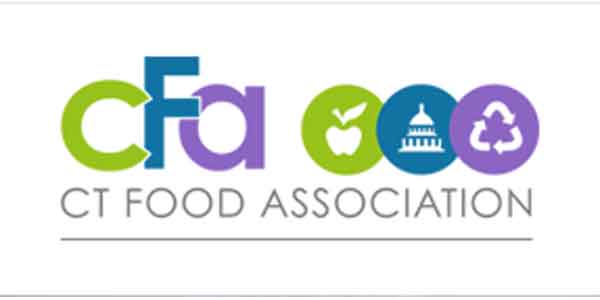The 2017 session of the Connecticut General Assembly ended at midnight Wednesday, leaving the usual list of wins, losses and unfinished business. The biggest item left on the to-do list is the budget.
The following article can be found in the June 8th, 2017 edition of The Connecticut Mirror.
Here’s a quick rundown of some of the bills that made it to the desk of Gov. Dannel P. Malloy, are on hold until the budget is resolved or got sidetracked in the session that opened on Jan. 4 with a membership nearly evenly split between Democrats and Republicans.
Winners
Lockbox: The state is rapidly running out of money for transportation projects, but voters will get a chance next year to vote for a constitutional amendment that would segregate transportation funds in a lockbox. Malloy has demanded it go on the ballot before he considers new transportation funding sources, such as as tolls.
Tribal casinos: An epic lobbying battle was won by the Mashantucket Pequot and Mohegan tribal nations. They were granted the right to jointly develop a casino in East Windsor to compete with MGM Resorts’ gaming resort in Springfield. MGM will continue to fight to block the project in court.
Justice reforms: On his second try, Malloy succeeded in winning passage of a bill that lessens the chances a defendant will be jailed solely over the inability to afford bail. The legislature also codified the Department of Correction’s much-praised standards for the use of solitary confinement, and it set stricter rules for asset forfeiture.
Police accountability: An expanded grant program that reimburses municipalities should increase the police use of body cameras, dashboard cameras and cameras that are automatically activated whenever police use Tasers or similar defensive weapons.
Gay rights: A ban on trying to change the sexual orientation of minors through conversion therapy, a discredited practice blamed for everything from depression to teen suicide, was passed on overwhelmingly strong and bipartisan votes and speedily signed into law.
For-profit colleges: Legislation that would restrict how much for-profit colleges can spend on advertising to recruit students and cap how much federal financial aid can be spent on non-instructional costs failed to be approved by either chamber. The legislation was a priority of the Senate chairwoman of the Higher Education Committee but faced significant pushback from Post University and Stone Academy, the for-profit schools it would impact.
Abused and neglected children: Legislation won approval strengthening standards for investigating allegations of abuse and neglect by the Department of Children and Families and requiring the department to set protocols for proper visitation and oversight by caseworkers. The changes followed a series of troubling investigations by a state watchdog detailing cases of neglect and warning signs that agency staff missed or ignored.
Preschool staff: Increased educational requirements for staff at state-funded preschool programs were delayed once again and loosened. Efforts to require preschool programs to employ staff with at least a bachelor’s degree in early childhood education have stalled for years. That’s because staff typically are not paid enough to make earning a bachelor’s degree worth their time. Legislation headed for the governor’s desk pushes back the deadline to July 1, 2018, and requires an associate’s degree instead of a bachelor’s degree.
Children in need: A bill passed with overwhelming support grants attorneys immediate access to the records of abused or neglected children in the foster care system. Currently it can take days before attorneys are able to begin work on a case.
Vocational schools: Frustrated with what seems to have become regular midyear cuts to the network of 17 state-run vocational high schools, legislators have sent a bill to the governor’s desk that would make the system an independent state agency beginning July 1, 2019. Mid-year cuts would have to be specifically directed at the high school system, but the governor’s budget office would still have to give approval before a school could hire anyone. (Read more here)
Pharmacy prices: On the last day, the House passed a Senate bill that would outlaw “gag clauses” in pharmacy benefit manager contracts that now bar pharmacists from sharing price information with customers. The provisions keep pharmacists from telling customers when they could save money by paying cash for a generic instead of a $20 co-pay.
Mimosas and Bloody Marys: If Malloy is quick to sign it, a law passed this week allows bars at the Travelers Championship golf tournament to open at 9 a.m. this year. The tournament opens June 19.
Losers
Campaign finance: The Senate refused to take up a House bill that tried to test the limits of states’ ability to regulate campaign finances in the post-Citizens United era by imposing rules intended to end the use of untraceable dark money in Connecticut elections.
Early voting: The Senate failed to vote on a measure approved by the House that was the first step on a long road to allow early voting. The state needs to change its constitution, which requires several years unless the legislature votes by a supermajority to put a constitutional amendment on the ballot. Thirty-seven other states already permit early voting. (Read the story on house passage here.)
Protecting public lands: This proposed referendum question would have asked voters if they wanted a constitutional amendment preventing the legislature from selling, trading or giving away state land without a public hearing and a two-thirds’ vote of approval in both chambers. It didn’t get a vote in either chamber.
Tesla: The market-disrupting company failed to get a vote in either chamber on a bill that would allow it to sell its electric cars in Connecticut without establishing a dealer network. It was the company’s third year of futility in the Land of Steady Habits.
Dominion Energy: The owner of the Millstone Nuclear Power Station succeeded in reviving a bill left for dead on the last weekend. It won passage in the Senate of a measure that would provide more favorable rules for selling energy produced at Millstone, but the bill fell short on the last day in the House.
‘Dreamers:’ The push to include undocumented immigrants among those eligible for a $165 million pool of college financial aid failed to win approval, despite an almost daily presence of so-called ‘Dreamers’ at the state Capitol. The bill failed to make it out of either chamber. (Read the story here.)
Stricter graduation requirements: Ordered by a Superior Court judge last fall to bolster graduation requirements so students are no longer awarded “diplomas but without the education we promise them,” state legislators instead passed legislation that loosens those requirements. Requirements set to go into effect with next year’s freshman class would have required students to earn additional credits in mathematics, science and foreign language; complete a senior project; and pass exams in algebra, geometry, biology, American history and English to graduate. But those requirements would have required districts to hire more teachers. The legislation now headed for the governor’s desk does away with the exit exams and senior project, and broadens the description of courses students must take to graduate. (Read the story here.)
Women’s health provisions: A measure intended to preserve the Affordable Care Act’s protections for women and children in Connecticut should they be repealed failed to make it out of the House after winning approval in the Senate. Among other provisions, the bill would open a 30-day window for uninsured women to obtain coverage after becoming pregnant. The bill was greeted with criticism from Malloy as another mandate on the state’s insurance industry. (Read the story here.)
Expelled students: The nearly 1,000 students expelled each year are provided with either a tutor for a few hours a week or enrollment in an alternative program — which the state does not oversee or set standards for. Last year, legislators changed the law to require that students be provided at least 180 days, or 900 hours of instruction, if they are expelled in an effort to sever the school-to-prision pipeline. This year, legislators repealed that looming requirement after an outcry from some superintendents and school board members.
Unfinished business
The legislature failed to adopt a budget for the next two fiscal years – which delays an inevitably much longer list of losers whose funding will be cut to help close state government’s yawning budget deficit.
Legislators hope to come up with a plan to close the $2.3 billion deficit for the upcoming fiscal year before it begins July 1.
The big decisions that remain in an upcoming state budget include whether some towns will face major cuts, as the governor has proposed, whether a bailout for a cash-strapped Hartford will be included, and what type of school-finance reform will be included ahead of a state Supreme Court ruling on whether the state’s education system is unconstitutional.


